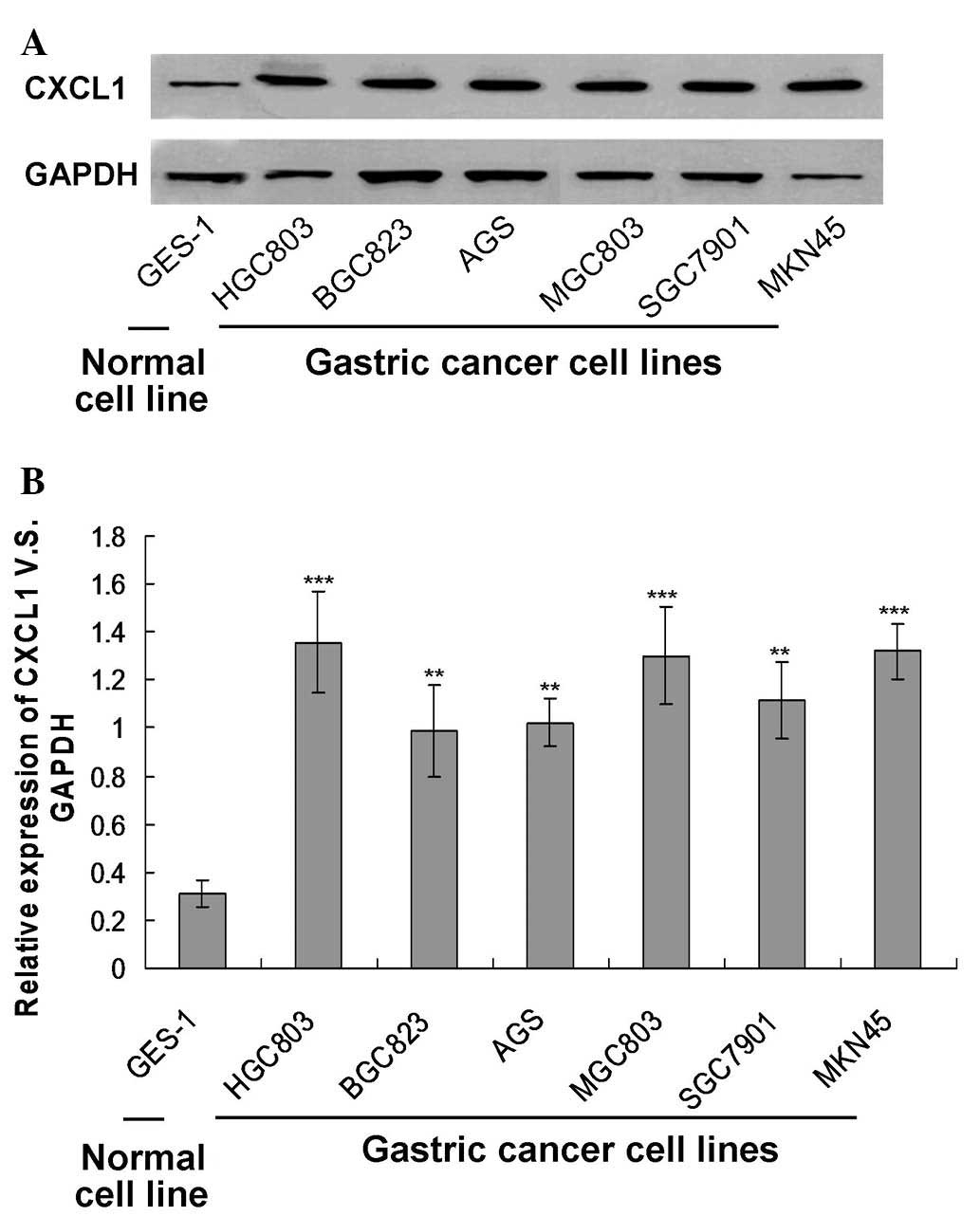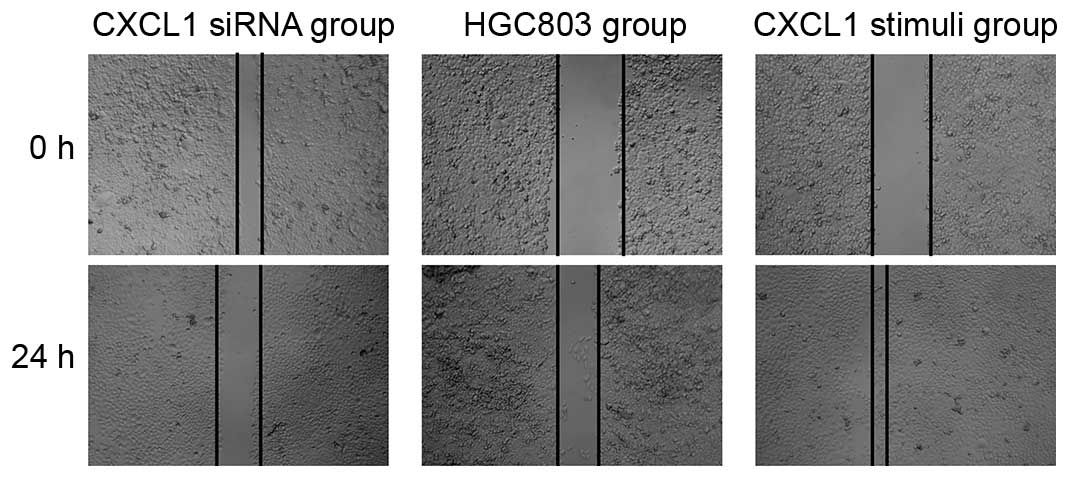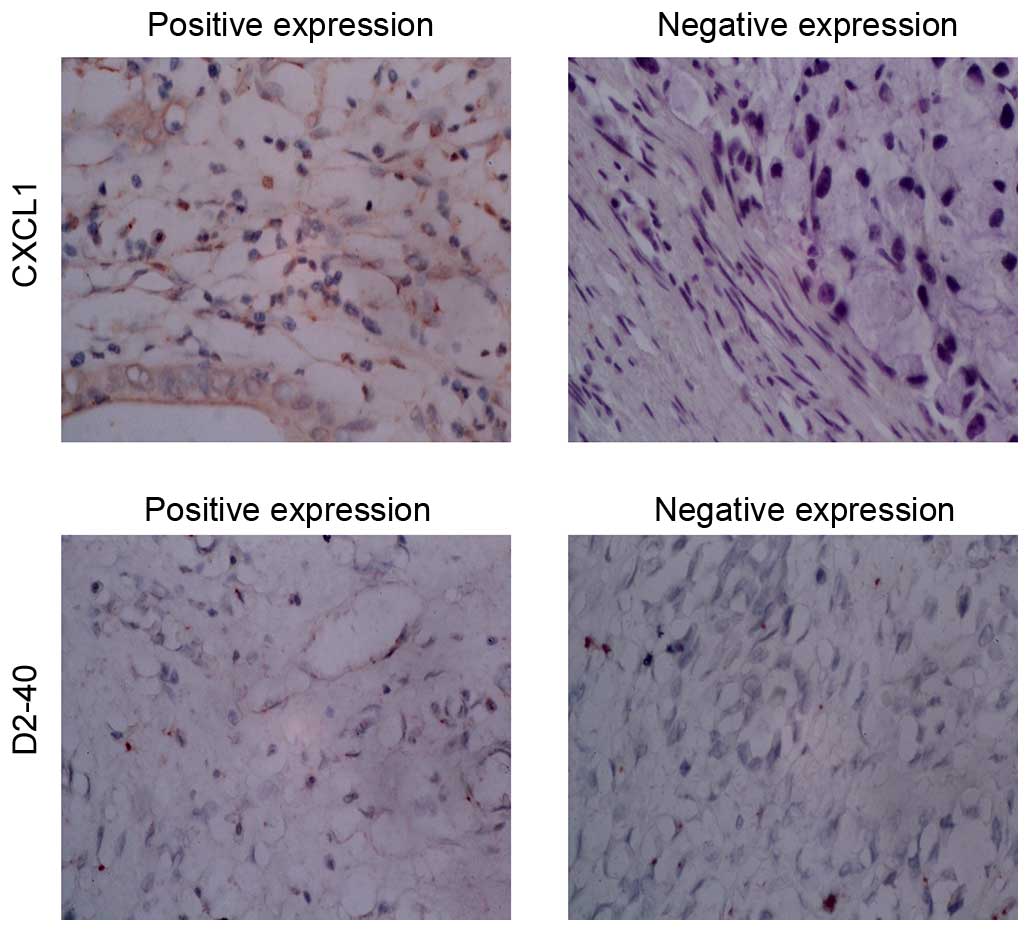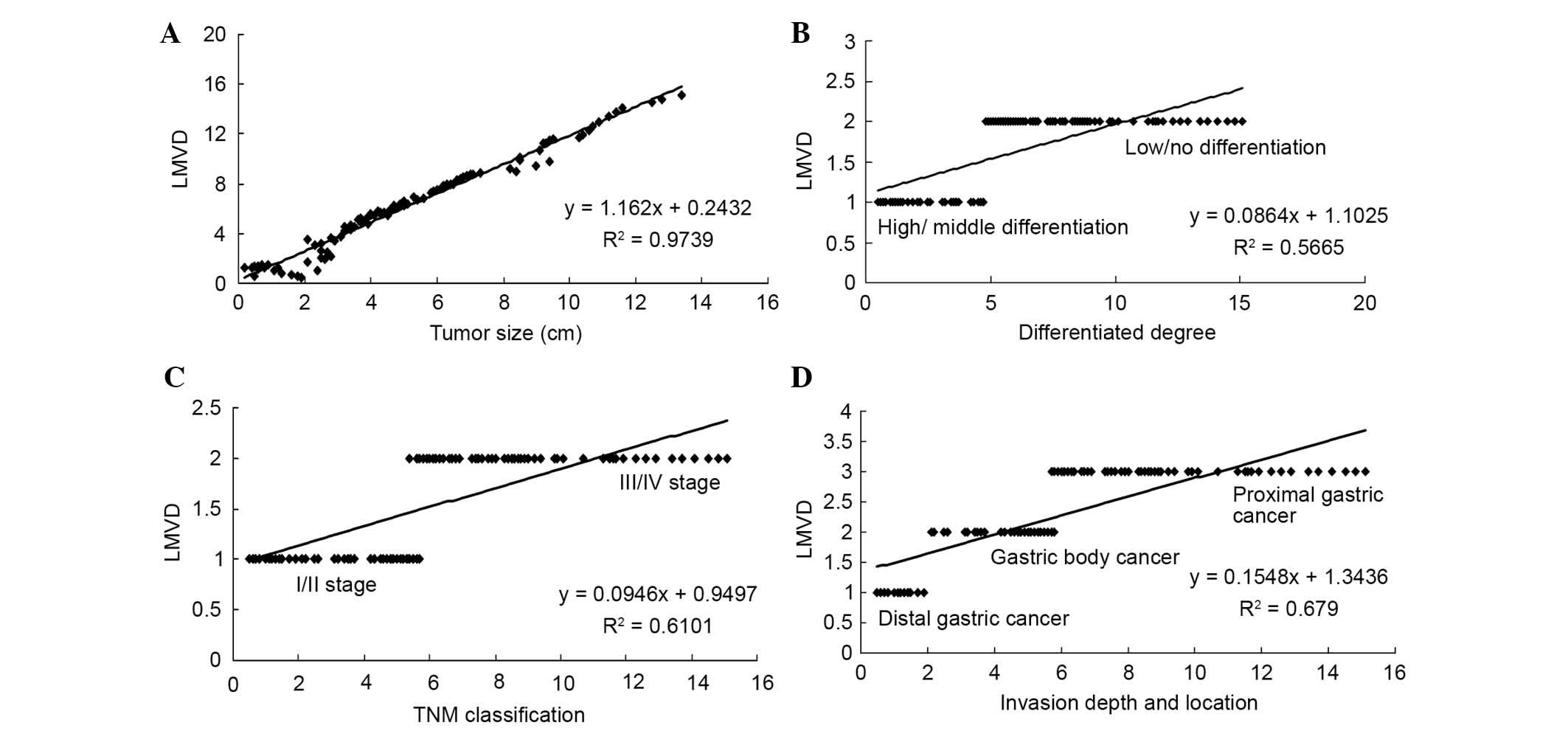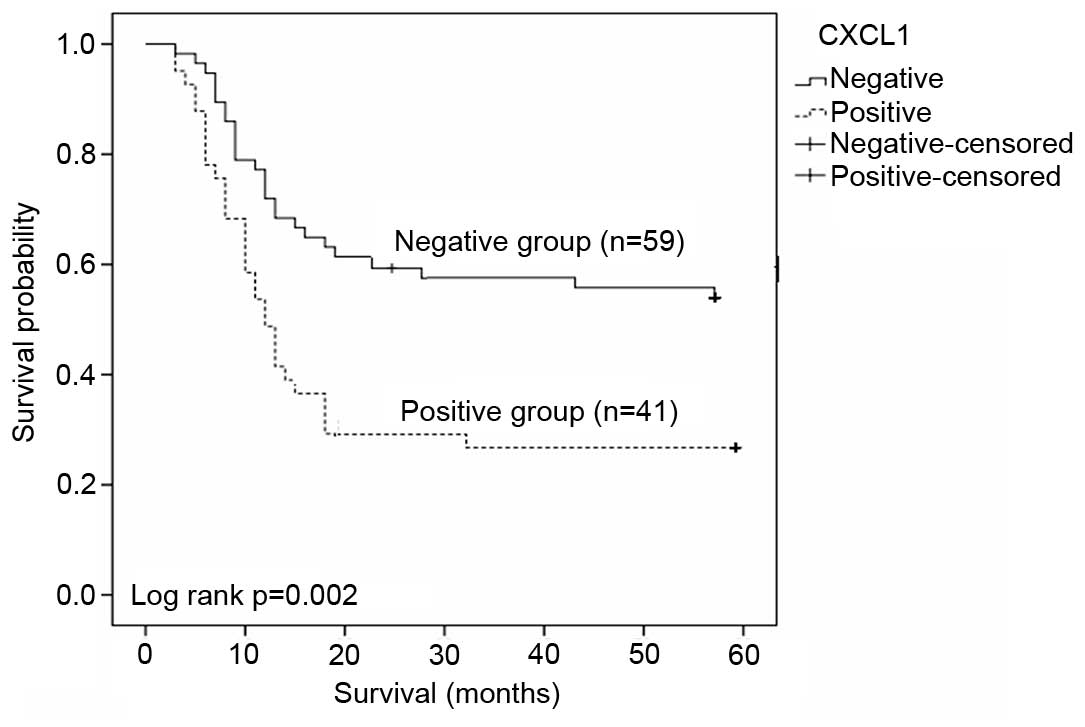|
1
|
Hua D, Shen L, Xu L, Jiang Z, Zhou Y, Yue
A, Zou S, Cheng Z and Wu S: Polypeptide
N-acetylgalactosaminyltransferase 2 regulates cellular
metastasis-associated behavior in gastric cancer. Int J Mol Med.
30:1267–1274. 2012.PubMed/NCBI
|
|
2
|
Bernal C, Aguayo F, Villarroel C, Vargas
M, Díaz I, Ossandon FJ, Santibáñez E, Palma M, Aravena E,
Barrientos C and Corvalan AH: Reprimo as a potential biomarker for
early detection in gastric cancer. Clin Cancer Res. 14:6264–6269.
2008. View Article : Google Scholar : PubMed/NCBI
|
|
3
|
Dhawan P and Richmond A: Role of CXCL1 in
tumorigenesis of melanoma. J Leukoc Biol. 72:9–18. 2002.PubMed/NCBI
|
|
4
|
Ravindran A, Sawant KV, Sarmiento J,
Navarro J and Rajarathnam K: Chemokine CXCL1 dimer is a potent
agonist for the CXCR2 receptor. J Biol Chem. 288:12244–12252. 2013.
View Article : Google Scholar : PubMed/NCBI
|
|
5
|
Yonemura Y, Fonseca L, Tsugawa K, Ninomiya
I, Matsumoto H, Sugiyama K, Ohoyama S, Fushida S, Kimura H and
Miyazaki I: Prediction of lymph node metastasis and prognosis from
the assay of the expression of proliferating cell nuclear antigen
and DNA ploidy in gastric cancer. Oncology. 51:251–257. 1994.
View Article : Google Scholar : PubMed/NCBI
|
|
6
|
Wallace AE, Sales KJ, Catalano RD,
Anderson RA, Williams AR, Wilson MR, Schwarze J, Wang H, Rossi AG
and Jabbour HN: Prostaglandin F2alpha-F-prostanoid receptor
signaling promotes neutrophil chemotaxis via chemokine (C-X-C
motif) ligand 1 in endometrial adenocarcinoma. Cancer Res.
69:5726–5733. 2009. View Article : Google Scholar : PubMed/NCBI
|
|
7
|
Yang G, Rosen DG, Zhang Z, Bast RC Jr,
Mills GB, Colacino JA, Mercado-Uribe I and Liu J: The chemokine
growth-regulated oncogene 1 (Gro-1) links RAS signaling to the
senescence of stromal fibroblasts and ovarian tumorigenesis. Proc
Natl Acad Sci USA. 103:16472–16477. 2006. View Article : Google Scholar : PubMed/NCBI
|
|
8
|
Cheng WL, Wang CS, Huang YH, Liang Y, Lin
PY, Hsueh C, Wu YC, Chen WJ, Yu CJ, Lin SR and Lin KH:
Overexpression of a secretory leukocyte protease inhibitor in human
gastric cancer. Int J Cancer. 123:1787–1796. 2008. View Article : Google Scholar : PubMed/NCBI
|
|
9
|
Wu CC, Chien KY, Tsang NM, Chang KP, Hao
SP, Tsao CH, Chang YS and Yu JS: Cancer cell-secreted proteomes as
a basis for searching potential tumor markers: Nasopharyngeal
carcinoma as a model. Proteomics. 5:3173–3182. 2005. View Article : Google Scholar : PubMed/NCBI
|
|
10
|
Goulding H, Pinder S, Cannon P, Pearson D,
Nicholson R, Snead D, Bell J, Elston CW, Robertson JF, Blamey RW,
et al: A new immunohistochemical antibody for the assessment of
estrogen receptor status on routine formalin-fixed tissue samples.
Hum Pathol. 26:291–294. 1995. View Article : Google Scholar : PubMed/NCBI
|
|
11
|
Kawanishi H, Matsui Y, Ito M, Watanabe J,
Takahashi T, Nishizawa K, Nishiyama H, Kamoto T, Mikami Y, Tanaka
Y, et al: Secreted CXCL1 is a potential mediator and marker of the
tumor invasion of bladder cancer. Clin Cancer Res. 14:2579–2587.
2008. View Article : Google Scholar : PubMed/NCBI
|
|
12
|
Eck M, Schmausser B, Scheller K, Brändlein
S and Müller-Hermelink HK: Pleiotropic effects of CXC chemokines in
gastric carcinoma: Differences in CXCL8 and CXCL1 expression
between diffuse and intestinal types of gastric carcinoma. Clin Exp
Immunol. 134:508–515. 2003. View Article : Google Scholar : PubMed/NCBI
|
|
13
|
Singh S, Sadanandam A, Nannuru KC, Varney
ML, Mayer-Ezell R, Bond R and Singh RK: Small-molecue antagonists
for CXCR2 and CXCR1 inhibit human melanoma growth by decreasing
tumor cell proliferation, survival, and angiogenesis. Clin Cancer
Res. 15:2380–2386. 2009. View Article : Google Scholar : PubMed/NCBI
|
|
14
|
Kitadai Y, Haruma K, Mukaida N, Ohmoto Y,
Matsutani N, Yasui W, Yamamoto S, Sumii K, Kajiyama G, Fidler IJ
and Tahara E: Regulation of disease-progression genes in human
gastric carcinoma cells by interleukin 8. Clin Cancer Res.
6:2735–2740. 2000.PubMed/NCBI
|
|
15
|
Zhi Y, Lu H, Duan Y, Sun W, Guan G, Dong Q
and Yang C: Involvement of the nuclear factor-kB signaling pathway
in the regulation of CXC chemokine receptor-4 expression in
neuroblastoma cells induced by tumor necrosis factor-α. Int J Mol
Med. 35:349–357. 2015.PubMed/NCBI
|
|
16
|
Salazar N, Castellan M, Shirodkar SS and
Lokeshwar BL: Chemokines and chemokine receptors as promoters of
prostate cancer growth and progression. Crit Rev Eukaryot Gene
Expr. 23:77–91. 2013. View Article : Google Scholar : PubMed/NCBI
|
|
17
|
Wakabayashi S, Yamaguchi K, Kumakura S,
Murakami T, Someya A, Kajiyama Y, Nagaoka I and Inada E: Effects of
anesthesia with sevoflurane and proporol on the cytokine/chemokine
production at the airway epithelium during esophagectomy. Int J Mol
Med. 34:137–144. 2014.PubMed/NCBI
|















